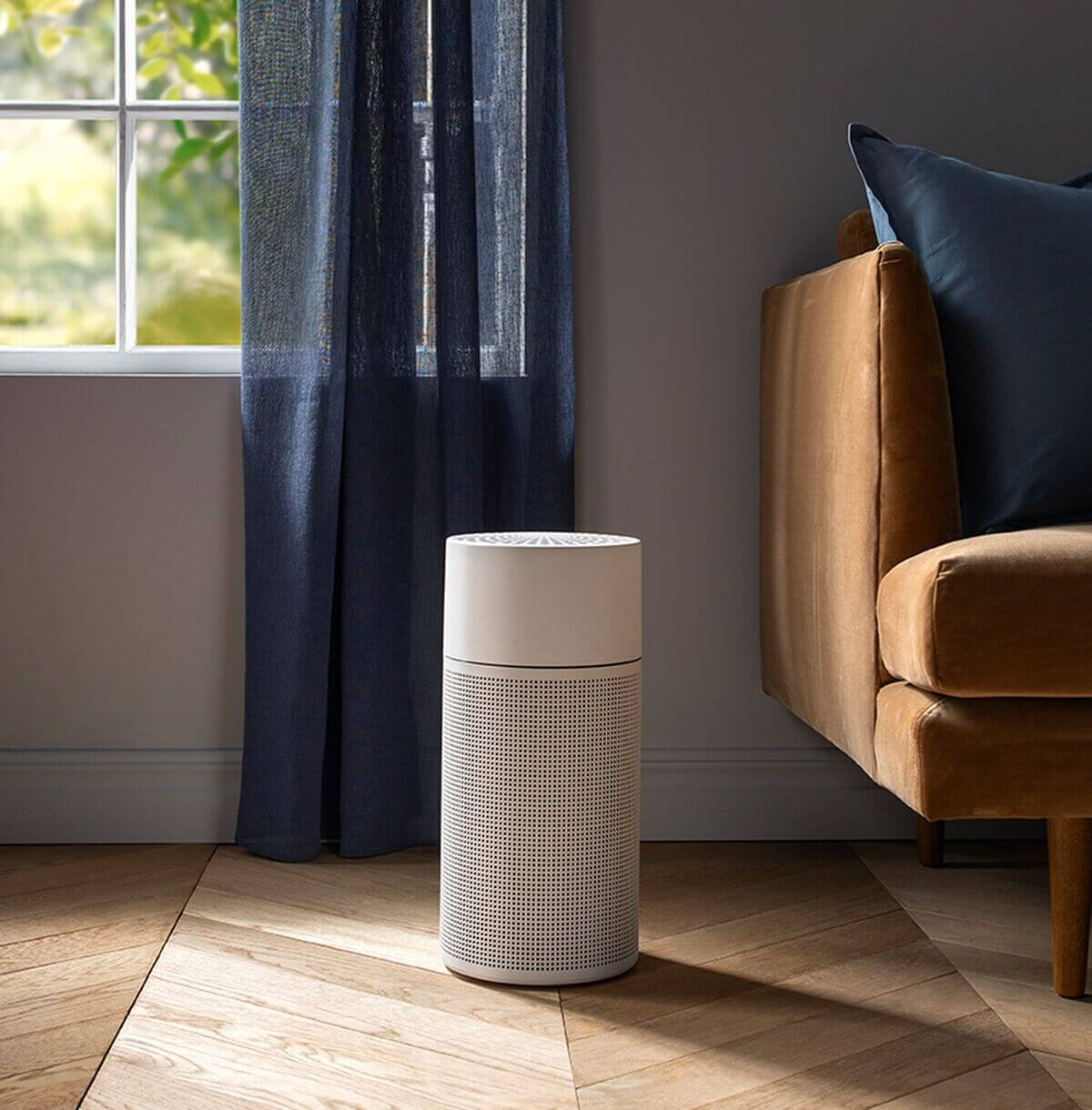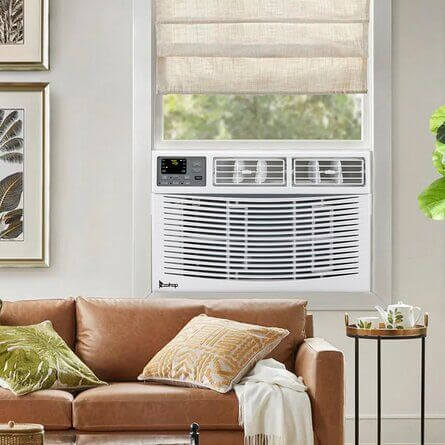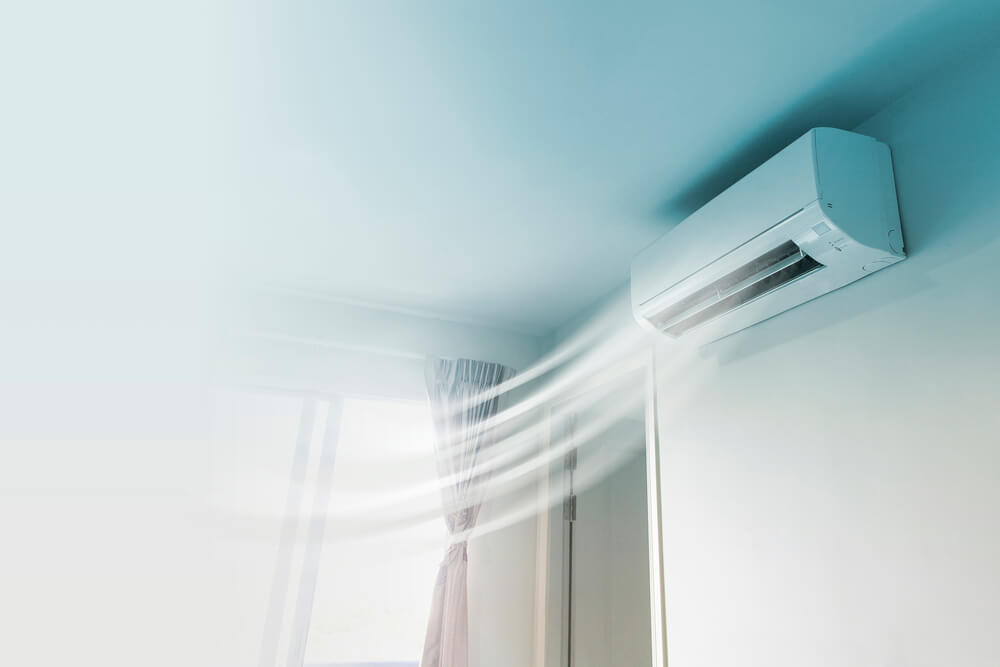Cold winters, hot summers, and air pollution, the effects of all of these can be improved with the help of modern-day technology.
The market is flooded with various air conditioners, air purifiers, and a host of similar products designed to alleviate the effects of air pollution and temperature changes.
If you live in a place with very hot summers, extremely cold winters, high pollen counts, or polluted air, either an AC unit or an air purifier is a must-have.
Options are very nice to have, but sometimes it’s hard to know which of these you need for your home or office.
In this guide, we take an in-depth look at the differences between these air conditioning and purifying products, helping to ensure you find the best option for your needs.
The Basics
An air purifier removes contaminated particles such as dust, pollen, mold spores, and pet dander from the air in order to improve air quality.
Air purifiers are commonly used for health reasons by individuals that struggle with asthma, allergies, and other respiratory diseases.
Air Purifiers

Air purifiers work in two different ways. Active air purifiers work by filtering negatively charged ions into the air, which causes the pollutants to stick to surrounding surfaces.
Meanwhile, passive air purifiers differ by using air filters to remove pollutants from the air. The best air purifier filter is a HEPA filter.
Both types of air purifiers are effective, but passive air purifiers are the preferred option since they permanently remove both small and larger particles such as dust mites, pet dander and other allergens, and airborne contaminants.
Air purifiers can either be stand-alone units or can be incorporated into HVAC systems.
Air Conditioners
An air conditioner is a machine that treats air in an enclosed area via a refrigeration cycle. Air is removed out of the room and replaced with either cooler or warmer air depending on the setting and temperature that the device is set to. Air conditioners are mainly used for comfort in areas that experience extreme temperatures. Air conditioners all work on the same principle, but they are available in different shapes and sizes.
Types of Air Conditioners
Window Air Conditioners

A window unit is a portable air conditioner normally found in a window or an exterior hole in the wall. Window air conditioners have limited cooling capacity due to their size and static location. However, these low-cost units have the cooling power for individual rooms or small apartments that don’t have a central HVAC system.
Air Source Heat Pumps
Air source heat pumps are a cost-effective air conditioning option for homes with ductwork. Air source heat pumps use electricity to move warm and cold air throughout your home. In winter, the heat pump brings concentrated warm outdoor air into the house from outside. During the summer months, it concentrates warm indoor air in your house and dumps it outside.
These energy-efficient systems are best suited for areas with mild temperatures and work very well in Southern California, but may not fare so well in Minnesota.
Central Air Conditioners
Central air conditioning systems consist of the condensing unit (outside the home) and the evaporative unit (inside the home). These luxury units deliver cool air to every room within a house simultaneously, and the majority of modern homes in the US feature these systems.
Ductless Air Conditioners
Ductless air conditioners are also known as split system air conditioners. These systems are ideal for homes without ductwork and offer a more permanent solution than window AC units. Ductless air conditioners feature one unit on the inside of the home and one unit on the outside of the home, and refrigerant tubing pipes connect the two units.
These systems normally only cool one room at a time, but depending on room size, more advanced systems are able to cool multiple rooms simultaneously.
Portable Air Conditioners
A portable air conditioner can be moved in and out of a room as you please. These air conditioners feature a hose that discharges hot air out through an exterior window. Portable AC units can be noisy, but they are great temporary cooling solutions.
Do Air Conditioners Purify the Air?
Air conditioners aren’t designed to purify indoor air, but they feature filters that filter some pollutants to improve indoor air quality.

The Key Differences Between Air Purifiers and Air Conditioners
It’s all in the name, air purifiers purify the air, and air conditioners condition (either heat up or cool down) the air.
Air purifiers remove pollutants from the air, meaning individuals that suffer from asthma, allergies or other respiratory diseases can benefit greatly by installing an air purification system in their home.
Air purifiers are also a great addition to your bedroom to ensure that you get a good night’s sleep while breathing in clean, pollution-free air.
To find out which air purifier is best for your bedroom, head here.
Air purifiers are recommended for health reasons as well as for people that live in big cities where air pollution is an issue. There is no prerequisite for installing an air filter; if you feel like you want clean air in your house, go ahead and get one of these air cleaners, it can only be beneficial.
Air conditioners are different from air purifiers, and while air conditioners do purify the air to some extent, their main function is to condition the air to change temperature. Air conditioners are mainly designed for geographical locations that experience either extremely hot or cold temperatures depending on the season. Air conditioners are available in many different shapes and sizes to suit your heating/cooling needs.
What About Humidifiers?
Humidifiers differ because they add water to the air in order to increase the humidity within a room.
Humidifiers are a welcome addition in areas with dry desert air. A variety of health-related issues are aggravated by dry air, including allergies and asthma. Humidity also ensures that your skin doesn’t dry out.
Humidifiers are available as stand-alone devices, or they can be connected to your home’s HVAC system.
Read More: We’ve created a full guide on the differences between air purifiers and dehumidifiers.
Conclusion
After reading this guide, we hope it clears up the fact that air purifiers and air conditioners aren’t the same.
The main difference is that air purifiers work by removing pollutants, allergens, and odors from the air, and air conditioners condition air to be either hot or cold depending on the temperature that your cooling system is set to.
Air purifiers and air conditioners are both complex systems, but with a good understanding of what each device does, you will be able to purchase the correct option for your needs without having to second guess yourself.

